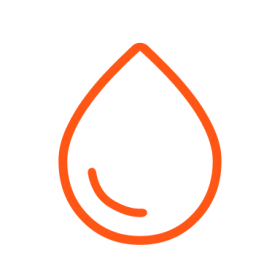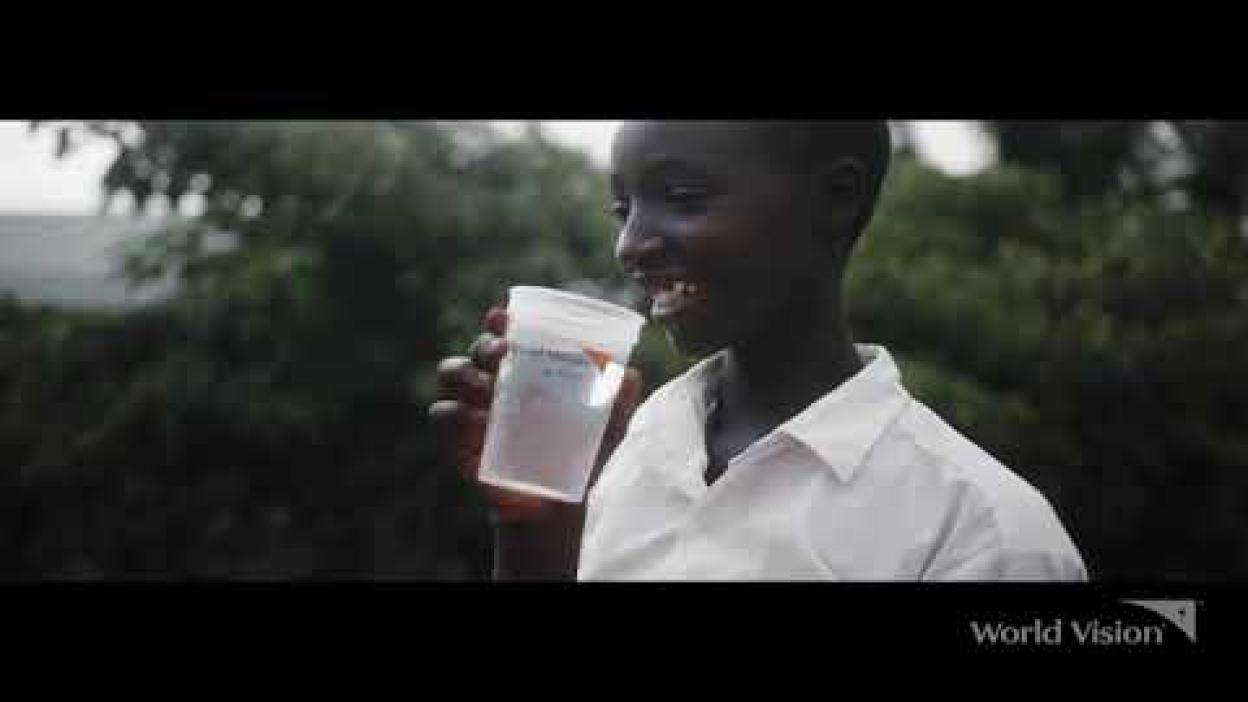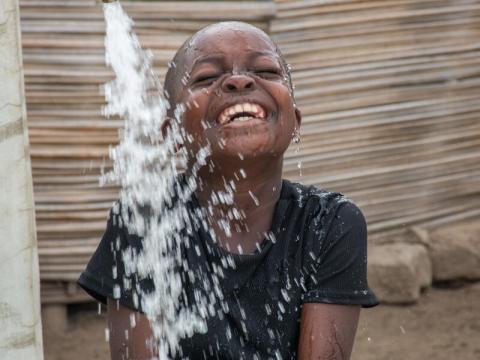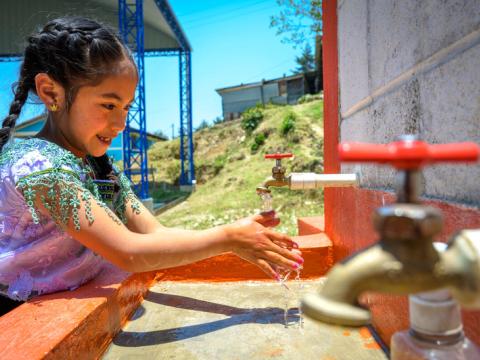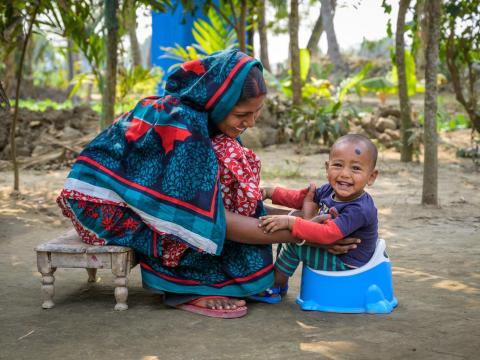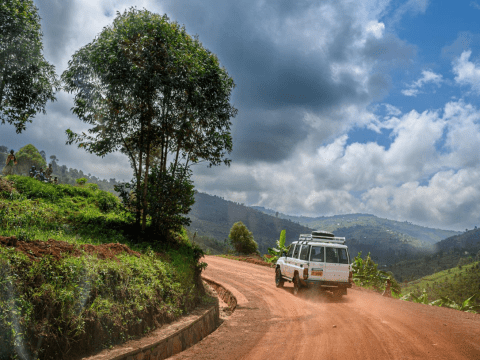Eau Salubre
Our Impact
Un monde dans lequel tous les enfants ont accès à l'eau salubre
Nous réalisons des progrès dans plus de 50 pays dans le monde. Nous nous efforçons d'assurer l'accès à l'eau au sein des communautés. Fournir de l'eau salubre et sans risque aux communautés réduit le temps nécessaire pour aller chercher de l'eau, donnant ainsi aux enfants le temps d'aller à l'école et aux parents, en particulier aux mères, le temps de gagner davantage d'argent pour subvenir aux besoins de leurs familles. Nous nous concentrons également sur l'eau, l'assainissement et l'hygiène au sein des ménages, en encourageant les comportements permettant de maintenir la salubrité de l'eau, en fournissant des toilettes sans risque et en favorisant d'autres pratiques pour gérer les déchets ménagers et s'assurer que tous les membres de la famille se lavent les mains au savon. Enfin, nous nous concentrons sur l'eau, l'assainissement et l'hygiène dans les centres de santé et les écoles, en nous assurant que ces lieux disposent d'un accès à l'eau salubre, à des toilettes décentes et à des installations de lavage de main adéquates. Nous veillons tout particulièrement à ce que ces installations soient adaptées aux besoins des femmes et des filles et accessibles aux personnes vivant avec un handicap.
Il reste beaucoup à faire. Près de 800 enfants décèdent chaque jour de maladies diarrhéiques imputables à la mauvaise qualité de l’eau, à un assainissement insuffisant et à une hygiène défectueuse. Le monde a promis de remédier à cette situation en assurant un accès universel et équitable à l'eau potable sans risque, à l'assainissement et à l'hygiène pour tous d'ici 2030. Notre engagement à contribuer à cet objectif consiste à assurer l'accès à l'eau salubre, à des moyens d'assainissement et à l'hygiène pour tous, partout où nous travaillons, d'ici 2030.
Our Approaches
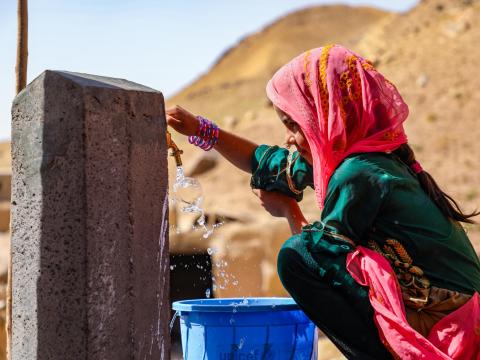
Water
We strive to provide access to clean water as close as possible to households. We build water points in partnership with communities and governments, and we work to ensure that water points are locally managed and maintained. We also emphasise behaviour change interventions so that water is kept safe during collection, transportation, storage and use.
We also provide clean water in schools and healthcare facilities, so that students and staff have access to water they need for drinking and other activities and patients and healthcare staff can wash their hands and keep their facilities and instruments clean to care for their patients and protect themselves.
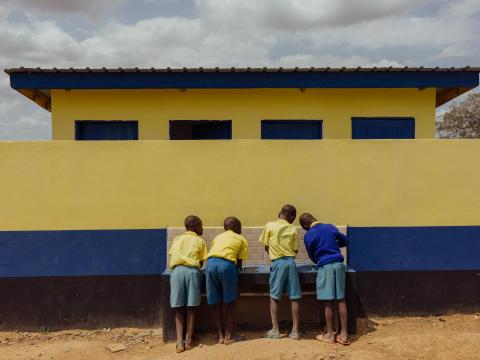
Sanitation
We believe every person should have access to a safe, private and dignifying toilet.
We have scaled up our work in sanitation, focusing on both building the demand for sanitation services and ensuring a sustainable supply of affordable household sanitation products. At schools and healthcare facilities, we provide toilets that meet the specific needs of women and girls and are accessible for people with disabilities.
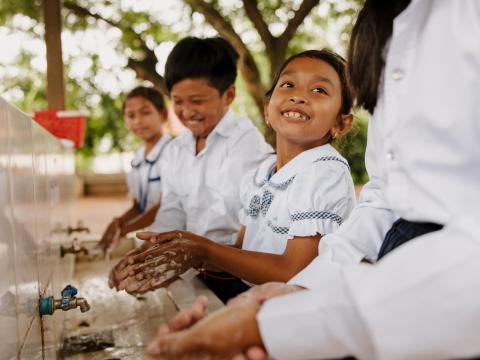
Hygiene
We believe every child should have access to the resources they need to keep themselves and their communities healthy.
We have increased our focus on handwashing including an emphasis on effective behaviour change programming, more durable handwashing products, and access to water close to home, at school and in healthcare facilities.
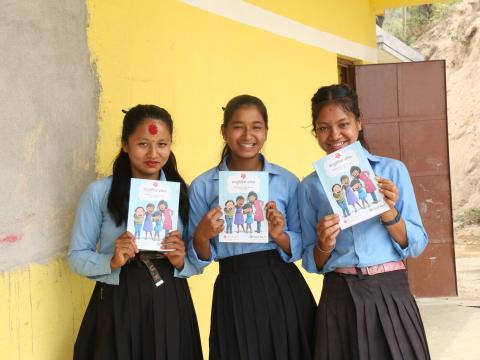
Menstrual Hygiene
We believe all women and girls have the right to menstruate with confidence, with dignity and with support.
Our programmes address all aspects of menstrual health and hygiene including policy and advocacy, timely and accurate knowledge about menstruation, social norms around menstruation, access to safe and affordable menstrual hygiene materials, and access to sanitation and washing facilities.
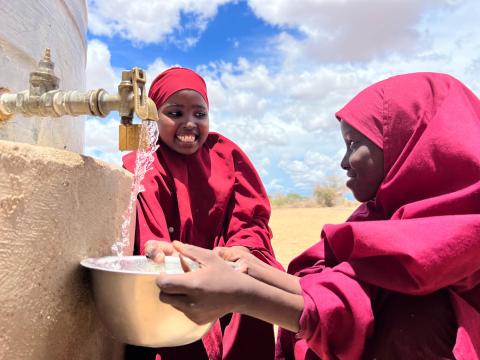
Water, Sanitation and Hygiene in Emergencies
Our approaches vary widely according to the need, culture, context and the nature of the disaster. In the early days of an emergency, we focus on providing immediate, life-saving WASH services in order to ensure survival of the most affected and most vulnerable children, families and communities. In the months following an emergency, we add programme activities that help communities recover and build back stronger than they were before.
We partner with governments, local organisations and the private sector, and our staff also take part in technical working groups along with agencies like UNICEF and UNHCR to ensure our work is coordinated with others on the ground.
